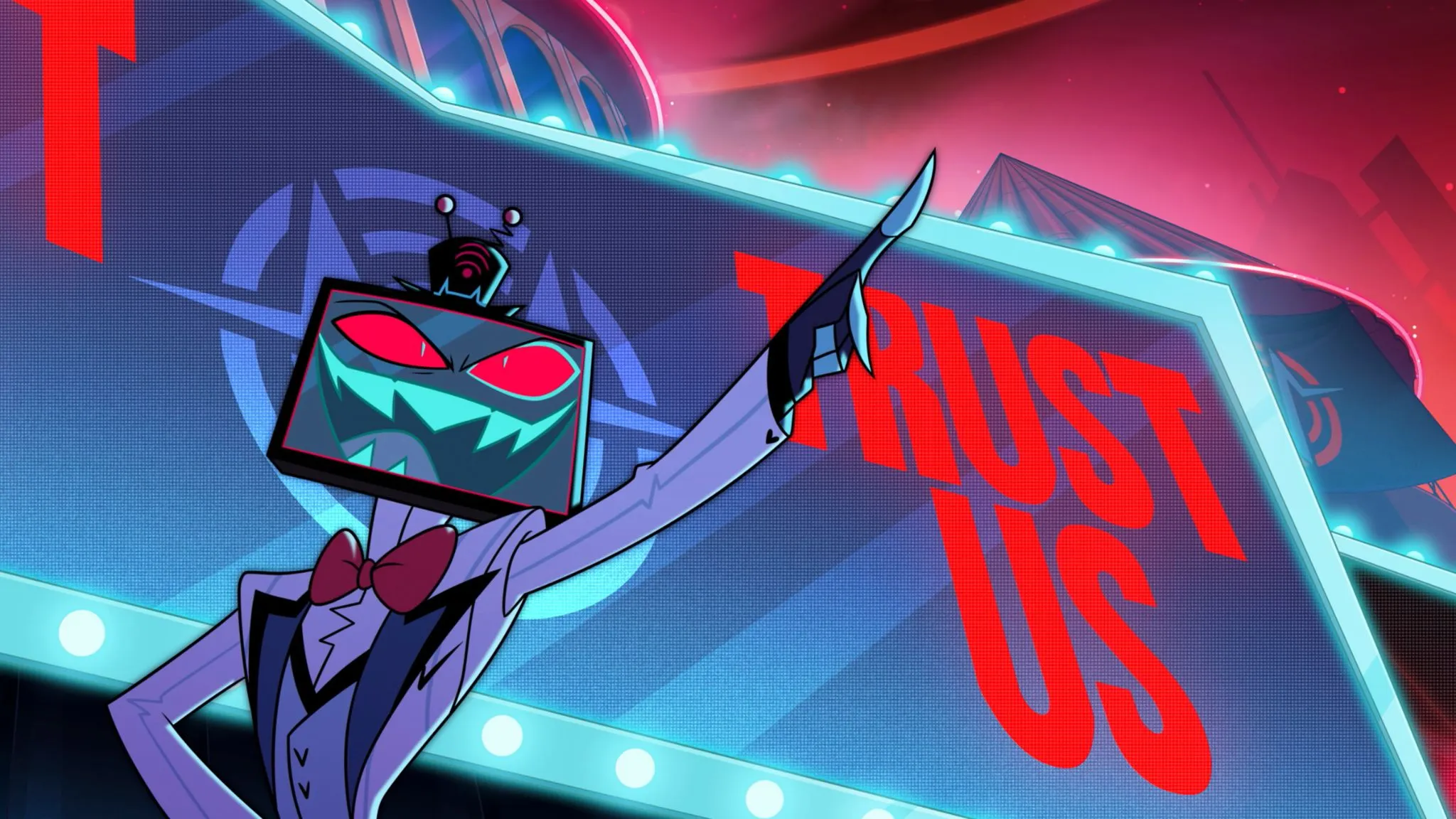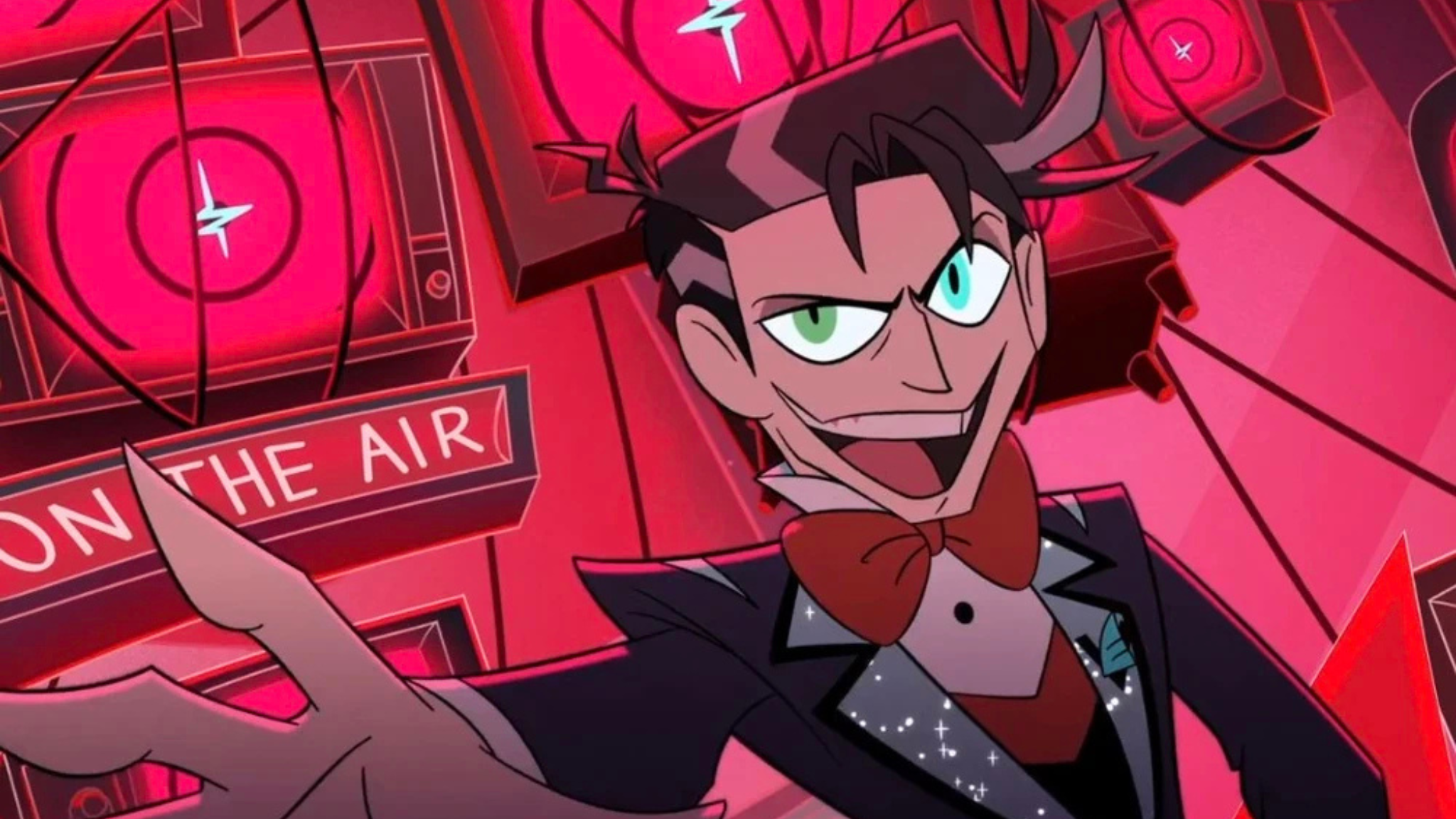
WARNING! This article contains spoilers for Hazbin Hotel Season 2, Episode 7.
The animated series Hazbin Hotel is known for its mature themes, dark comedy, and complex characters. Season 2 focused more on the backstory of the Vees, especially Vox, and revealed a surprising connection to real-world events. A popular theory suggests that Vox, formerly known as Vincent Whittman, may have been involved in the creation of the Branch Davidians, a controversial group known for the Waco siege. This idea isn’t just speculation; it’s based on details revealed by Vox himself, and there are strong connections between his past, his goals, and the origins of the group, which makes his actions even more unsettling.
Hints are scattered throughout the story—in small details and images—suggesting a darker and more disturbing past for the TV personality who used to commit murders.
Vox’s Human Past and His Ambition Echo a Doomed Prophecy

In the first episode of Season 2, titled “New Pentious,” Vox casually mentions how much he misses being a cult leader, hinting at his desire to control others and wield absolute power in Hell. This detail fits his character, as he’s shown to be manipulative and power-hungry, but it’s only brought up once. Later, in Episode 7, “Weapon of Mass Distraction,” we learn about Vox’s life as a human named Vincent Whittman. In the 1950s, Whittman was a driven and ruthless television personality who started as a weatherman and used manipulation and even murder to become a popular talk show host, similar to Johnny Carson.
Considering Vox was recently described as a cult leader, it’s notable that the Branch Davidians – the religious group known for the 1993 Waco tragedy – began in 1955 as a splinter group from the Seventh-day Adventist Church. Although David Koresh, their most well-known leader, didn’t take charge for many years, the group’s early history strikingly matches the timeline and themes of power presented in Vox’s story.
Despite living decades apart, there are remarkable similarities between Vox and David Koresh. Koresh claimed to be a prophet, chosen by God to explain biblical prophecies. Vox, appearing as a demon, consistently presents himself as a god – Vox Populai, meaning “the voice of the people” – and demands to be worshipped and followed completely. His desire for unlimited power, extending beyond Hell to encompass Heaven itself, strongly mirrors the Branch Davidians’ strong belief that their leader had a direct connection to God and offered the path to salvation. Visuals of Vox often show him dressed in religious clothing, like a priest or the Pope, with phrases like “Worship Me” reinforcing his inflated sense of self-importance and messianic tendencies.
The 1950s saw the rise of televangelism as televisions became common in homes, replacing radio as the primary source of entertainment. This background is especially interesting when considering Vox’s history as a cult leader. Because he was connected to broadcasting and could mesmerize people through his broadcasts from Hell, it’s likely Vox, while living as Vincent Whittman, took advantage of this new media to gain followers. He could have used the public’s trust in early TV personalities and religious leaders to start his cult, using broadcasts to spread his beliefs and attract devoted followers. Vox’s skill in manipulating media is similar to how other religious leaders used television to reach a large audience and build powerful, sometimes cult-like, groups.
Alastor’s Revelation Uncovers a Deeper Conspiracy

The idea that Vox (also known as Vincent) helped start a notorious cult adds a disturbing new layer to a line from the Season 1 song “Stayed Gone.” When Alastor explains why he and Vox became enemies, he says Vox invited him to join his “team,” but Alastor refused, and Vox became upset. Previously seen as just a rivalry between powerful figures in the media, this moment suggests something far more sinister if Vox was actually the leader of a cult when he was human.
Vox didn’t want to simply combine radio and television for entertainment or money. He had a darker goal: to use the combined power of both mediums to create a cult-like following. We see a younger Vox suggest this partnership to Alastor in a Season 2 flashback, but Alastor rejects the idea and belittles Vox, sparking their ongoing feud. Vox’s intention was obvious: he envisioned a manipulative figure who could control what people heard and saw, allowing him to influence the inhabitants of Hell like never before.
It’s possible Vox wasn’t simply trying to impress Alastor when he proposed a partnership. He might have been attempting to gain control of the media with Alastor’s help, allowing him to spread his beliefs and gain more followers. Alastor’s rejection wasn’t just a refusal of a business deal or an attempt to embarrass Vox; it was a refusal to get involved in a risky ideological scheme with someone as ambitious and unstable as Vox. Vox’s angry reaction wasn’t just about losing a potential partner; it was the frustration of someone with grand plans for controlling people’s minds, plans that were instantly destroyed by Alastor’s dismissive laughter.
The idea that Vox, when he was Vincent Whittman, may have played a role in the beginnings of the Branch Davidian movement adds an unsettling layer to his already evil character. It connects Vincent’s desire for power and his talent for manipulation directly to a real-life tragedy that shares disturbing similarities, suggesting his ambition caused destruction even before he fell into Hell. The subtle clues and timeline connections between historical events and the story of Hazbin Hotel hint at a more complex and disturbing past for Vox, portraying him not just as a technology-focused Overlord, but as someone whose actions on Earth contributed to the rise of a tragic cult. This demonstrates the creator Vivienne Medrano’s skill in crafting a detailed story, seamlessly blending a dark and complex history into the show’s vibrant, hellish setting.
What do you think? Leave a comment below and join the conversation now in the ComicBook Forum!
Read More
- Best Controller Settings for ARC Raiders
- Gold Rate Forecast
- Survivor’s Colby Donaldson Admits He Almost Backed Out of Season 50
- How to Build a Waterfall in Enshrouded
- How to Get the Bloodfeather Set in Enshrouded
- Meet the cast of Mighty Nein: Every Critical Role character explained
- Where Winds Meet: How To Defeat Shadow Puppeteer (Boss Guide)
- Everything Coming to Netflix This Week (October 20th)
- Why XRP Still Stuck, Despite Ripple’s Mega Moves: The Saga of a Digital Underachiever
- Black Mirror’s Charlie Brooker reveals “horrible” moments he cut from Common People
2025-11-19 21:11